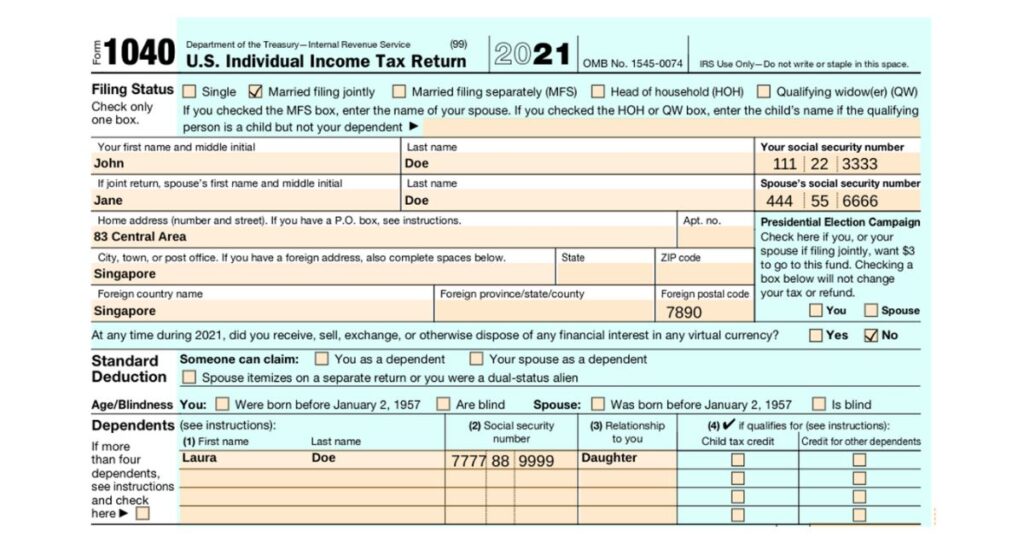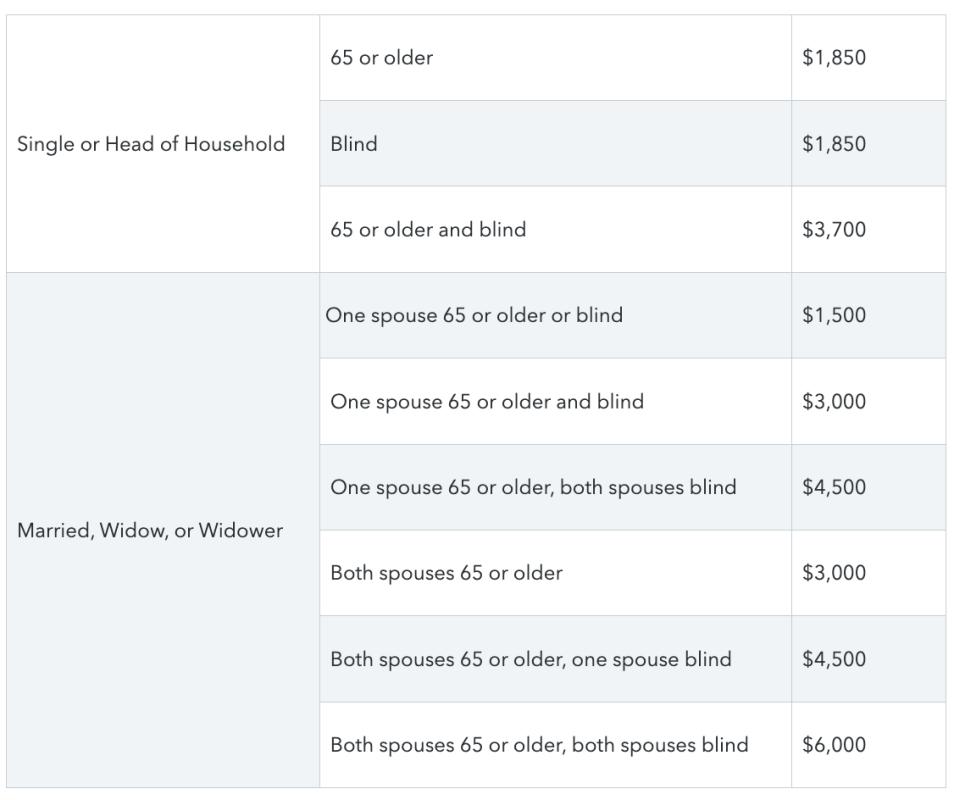Major mistakes taxpayers make when handling the FEIE Standard Deduction
Wiki Article
Understanding the Foreign Earned Revenue Exclusion and Its Influence On Your Common Deduction
The Foreign Earned Revenue Exclusion (FEIE) uses significant benefits for migrants, allowing them to omit a section of their foreign-earned earnings from united state taxation. Nonetheless, declaring the FEIE can make complex one's tax circumstance, specifically pertaining to the typical deduction. Comprehending this communication is vital for people living abroad. As migrants browse these intricacies, they should think about just how their choices impact their general tax obligation responsibility. What strategies can they utilize to enhance their economic end results?What Is the Foreign Earned Income Exclusion (FEIE)?
The Foreign Earned Income Exclusion (FEIE) functions as a crucial tax obligation advantage for united state people and resident aliens functioning abroad. This stipulation permits eligible individuals to leave out a substantial portion of their foreign-earned income from U.S. taxation, successfully decreasing their overall tax burden. The FEIE aims to alleviate the financial stress on migrants and motivates Americans to go after employment possibility in international markets. The exemption relates to earnings, incomes, and expert fees earned while staying in an international country. The maximum exclusion amount is readjusted annually for rising cost of living, ensuring that it remains pertinent to present economic conditions. By making use of the FEIE, expatriates can maintain more of their revenue, cultivating monetary stability while living overseas. In general, the FEIE plays a crucial function fit the economic landscape for Americans abroad, facilitating a smoother change to international workplace and promoting financial interaction on a global range.Eligibility Needs for the FEIE
Eligibility for the Foreign Earned Revenue Exemption (FEIE) is contingent upon meeting specific standards established by the Irs (INTERNAL REVENUE SERVICE) Mainly, individuals need to be U.S. citizens or resident aliens that make income while living in a foreign nation. To qualify, they have to satisfy one of 2 primary examinations: the Physical Presence Examination or the Authentic Home Examination.The Physical Presence Examination calls for individuals to be physically present in a foreign nation for a minimum of 330 full days within a 12-month duration - FEIE Standard Deduction. On the other hand, the Bona Fide Residence Examination necessitates that people develop residency in a foreign nation for a continuous period that consists of an entire tax year
Furthermore, the revenue should be stemmed from individual solutions carried out in the international nation. Satisfying these needs allows taxpayers to omit a substantial portion of their foreign-earned earnings from united state taxes, consequently decreasing their general tax obligation responsibility.
How to Claim the FEIE

To begin the procedure, people must gather records that verify their international incomes, such as pay stubs, tax returns from international countries, and any relevant employment agreement. It is essential to guarantee all earnings asserted under the FEIE is made from international sources and fulfills the required thresholds.
Additionally, taxpayers need to consider filing due dates and any possible extensions. Declaring the FEIE correctly not just aids in reducing tax obligation liability but additionally assures conformity with IRS policies. Appropriate documents and adherence to guidelines are crucial for an effective case of the Foreign Earned Earnings Exclusion.
The Communication Between FEIE and Basic Reduction
The communication in between the Foreign Earned Revenue Exclusion (FEIE) and the conventional reduction is an essential facet of tax planning for expatriates. Comprehending the basic concepts of FEIE, in addition to the limitations of the standard deduction, can considerably influence tax obligation filing approaches. This area will certainly check out these elements and their ramifications for taxpayers living abroad.FEIE Basics Discussed
While numerous expatriates seek to decrease their tax obligation burden, understanding the communication in between the Foreign Earned Earnings Exemption (FEIE) and the typical reduction is crucial. The FEIE allows U.S. citizens and resident aliens living abroad to leave out a specific quantity of foreign earned revenue from united state taxes. This exclusion can considerably reduce taxable income, potentially affecting qualification for other deductions, such as the basic deduction. Extremely, people that declare the FEIE can not likewise take the basic deduction against the omitted earnings. Therefore, expatriates must carefully review their overall earnings and deductions to maximize their tax situation. Awareness of these communications can result in even more educated financial choices and much better tax obligation approaches for expatriates steering through their special situations.Standard Deduction Limitations
Recognizing the constraints of the conventional reduction in regard to the Foreign Earned Income Exemption (FEIE) is important for migrants maneuvering their tax responsibilities. While the FEIE permits qualifying individuals to leave out a certain quantity of foreign-earned revenue from united state taxes, it can impact the standard deduction they are qualified to case. Particularly, taxpayers that claim the FEIE can not additionally claim the conventional reduction on that omitted revenue. Additionally, if an expatriate's complete income falls below the typical useful link deduction limit, they might not take advantage of it whatsoever. This interaction necessitates cautious preparation to enhance tax obligation benefits, as underutilizing the basic deduction can result in higher taxable earnings and raised tax obligation liability. Comprehending these constraints is critical for reliable tax obligation approach.Tax Obligation Declaring Effects
Maneuvering the tax filing ramifications of the Foreign Earned Earnings Exclusion (FEIE) needs cautious factor to consider of just how it connects with the standard deduction. Taxpayers utilizing the FEIE can exclude a significant portion of their foreign-earned income, but this exclusion affects their qualification for the standard deduction. Particularly, if an individual claims the FEIE, they can not likewise declare the common reduction for that earnings. This can cause a reduced general tax responsibility yet may make complex the filing process. Furthermore, taxpayers should guarantee conformity with internal revenue service demands when filing Form 2555 for the FEIE. Recognizing these communications is crucial for enhancing tax advantages while preventing prospective challenges in the filing procedure. Careful preparation can take full advantage of advantages and decrease liabilities.Possible Tax Effects of Using the FEIE
The Foreign Earned Revenue Exemption (FEIE) provides substantial tax benefits websites for united state citizens working abroad, yet it likewise comes with possible implications that call for cautious consideration. One significant consequence is the influence on qualification for sure tax credit scores and deductions. By choosing to use the FEIE, taxpayers may accidentally decrease their adjusted gross earnings, which can limit accessibility to credit ratings like the Earned Earnings Tax obligation Credit scores or lower the quantity of common reduction available.
Furthermore, individuals who use the FEIE might encounter difficulties when returning to the united state tax obligation system, specifically worrying the taxation of future earnings. The exemption uses only to made earnings, suggesting various other income types, such as returns or passion, remain taxable. This difference necessitates meticulous record-keeping to guarantee compliance. Lastly, the FEIE might affect state tax responsibilities, as some states do not identify the exemption and might exhaust all earnings made by their homeowners, despite where it is earned.
Tips for Maximizing Your Tax Benefits While Abroad
While working abroad can be enriching, it also presents distinct opportunities to maximize tax obligation benefits. To take full advantage of these benefits, individuals should first determine their eligibility for the Foreign Earned Revenue Exemption (FEIE) and take into consideration the physical visibility examination or the authentic residence test. Keeping detailed documents of all earnings earned and expenses sustained while abroad is essential. This paperwork supports claims for reductions and credit ratings.In addition, comprehending the tax treaties in between the United States and the host country can assist prevent double taxes. Individuals ought to additionally discover contributions to tax-advantaged accounts, such as IRAs, which may give additional deductions.

Speaking with a tax obligation professional specializing in expatriate tax regulation can provide customized strategies and guarantee conformity with both U.S. and foreign tax obligation commitments. By taking these steps, migrants can effectively improve their monetary situation while living abroad.
Often Asked Inquiries
Can I Use FEIE if I Work for an International Federal government?
Yes, a person can utilize the Foreign Earned Revenue Exclusion (FEIE) while helping an international federal government, offered they fulfill the requisite problems outlined by the IRS, including check the physical existence or authentic house examinations.
Does FEIE Relate To Self-Employment Income?
The Foreign Earned Income Exclusion (FEIE) does use to self-employment earnings, offered the individual fulfills the needed demands. Qualified independent individuals can exclude certifying income earned while staying in a foreign nation from tax.Suppose My Foreign Revenue Surpasses the FEIE Restriction?
The excess quantity may be subject to U.S. tax if foreign earnings goes beyond the FEIE limitation. Taxpayers must report and pay tax obligations on the income above the exclusion limit while still benefiting from the exclusion.Can I Assert the FEIE and Make A List Of Reductions?
Yes, individuals can assert the Foreign Earned Revenue Exemption (FEIE) while also making a list of reductions. However, they must know that claiming the FEIE may influence the availability of certain itemized reductions on their income tax return.Exactly How Does FEIE Impact My State Tax Obligations?
The Foreign Earned Income Exemption can decrease state tax obligation obligations, as many states follow federal guidelines. Private state guidelines differ, so it's vital to get in touch with state tax guidelines for specific ramifications on tax duties.The Foreign Earned Revenue Exclusion (FEIE) offers substantial benefits for expatriates, enabling them to exclude a portion of their foreign-earned revenue from United state taxes. While lots of expatriates look for to reduce their tax obligation problem, comprehending the communication between the Foreign Earned Income Exclusion (FEIE) and the basic reduction is vital. Recognizing the restrictions of the basic reduction in relation to the Foreign Earned Income Exemption (FEIE) is vital for migrants maneuvering their tax responsibilities. The exclusion uses only to gained revenue, implying various other revenue types, such as dividends or passion, remain taxable. The Foreign Earned Revenue Exemption (FEIE) does apply to self-employment earnings, gave the individual meets the essential requirements.
Report this wiki page